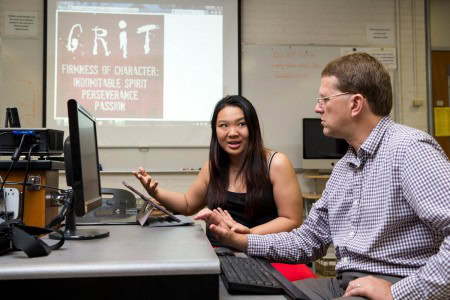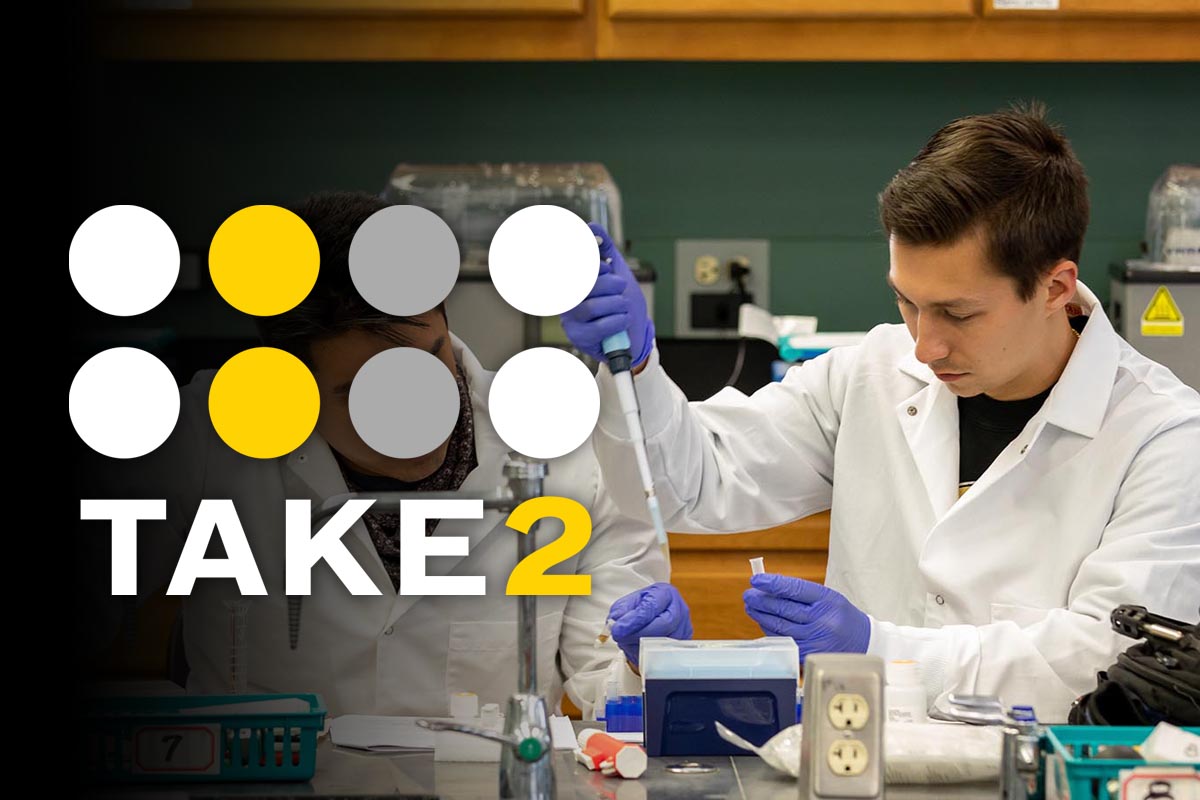National Science Foundation awards nearly $1 million to Randolph's SUPER program for mental health, inclusion initiatives

Zhe Chen ’17 and physics professor Peter Sheldon discuss their research during the 2016 SUPER program.
For years, Randolph College’s Step Up to Physical Sciences and Engineering at Randolph (SUPER) program has worked to help students, both financially and academically, as they pursue demanding undergraduate courses.
Now, thanks to a nearly $1 million grant from the National Science Foundation (NSF), the College will expand the program to include mental health and inclusion initiatives, with the goal of supporting student well-being and resilience to advance undergraduate degree completion in STEM fields.
“This past year at the largest gathering of physics students in the world, mental health was identified as students’ number one concern in being successful in college,” said physics professor Peter Sheldon, who runs the SUPER program. “We hope to help our students overcome these and other challenges they face.”
This is the third time the College has received a grant from the NSF in support of SUPER. In 2013, Randolph was awarded a $600,000 grant that helped expand the program, followed in 2016 by $1 million that funded it through 2021.
“Receiving funding from the NSF for a third round is a huge honor and recognition of all of the steps we are taking to continually improve the program,” said physics and environmental science professor Sarah Sojka. “The NSF does not typically support programs this many times, which makes this grant particularly exciting.”
Created in 2010, SUPER is a four-year program that provides scholarships to a select number of students each year. It includes academic services, tutoring, special mentoring opportunities, and career guidance support for those interested in science, math, engineering, and technology. It also includes a two-week college transition program held just before classes start in August, which offers participants a head start on their coursework.
The new NSF funds, to be distributed over five years, will provide at least 32 students with scholarships and build on already existing support services. Additional programming will include resilience training during the summer transition program and a year-long series of “Wellness Wednesdays” that focus on academic, social, and emotional/mental health wellness, as well as implicit bias training for faculty and students.
Sheldon and Sojka wrote the proposal with fellow professors Jesse Kern and Meghan Halbrook.
“It means so much to be able to help the students financially,” Sheldon said, “and to also offer programming to give every student a step up to get ahead and stay ahead in college.”
Sojka said they’ll also work to get the College to at least a 3-star rating on the Campus Pride Index, a national benchmarking tool for colleges and universities to create safer and more inclusive campus communities for LGBTQ students.
“We will be partnering with a lot of offices across campus,” she said. “I am very excited about this approach because it recognizes that we can better equip students for the challenges of college and continually work to improve how supportive and inclusive our campus environment is, removing or reducing some of the challenges students face.”
Sojka said the NSF’s continued support is a testament to the students in the program and the education they receive at Randolph.
“Across the country, many students who begin college interested in the sciences drop out, either of college overall or out of the sciences. Some students leave to pursue other interests but many leave because they struggle, feel excluded from the STEM community, or face mental health challenges,” she said. “With each version of the SUPER program, we have worked to address more and more of these issues.”
Tags: college scholarships, engineering, Engineering Physics, grantroll, grants, inclusion, mental health, National Science Foundation, physics, research, science, SUPER, Vita No. 9
